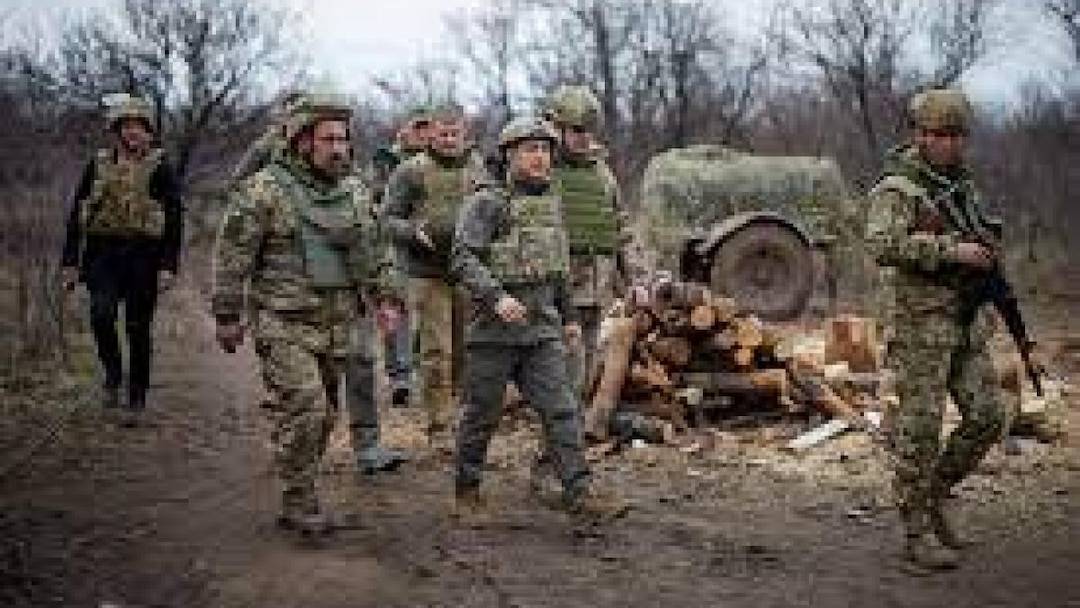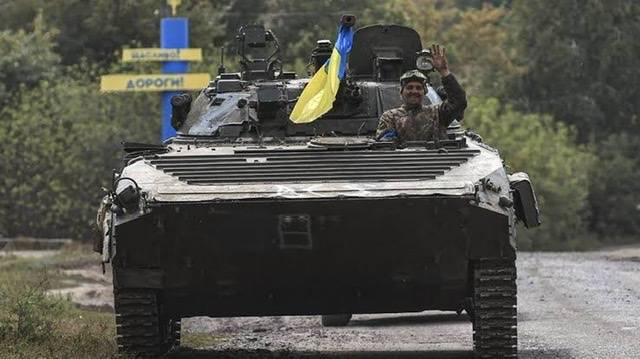Ukraine says Russian forces are leaving Chernobyl

According to Ukraine's state nuclear company Energoatom, staff at the plant said there are currently no "outsiders" at the site.
Earlier, some Russian forces had set off towards the Belarusian border, leaving a small group behind.
The announcement confirms reports by senior US defence officials on Wednesday of a withdrawal.
Russian troops seized Chernobyl at the beginning of their invasion of Ukraine on 24 February.
"This morning, the invaders announced their intentions to leave the Chernobyl nuclear power plant," Energoatom said on Thursday.
The company later accused the Russian military of abducting members of the Ukrainian National Guard held captive since the start of the war. Energoatom sourced its information to workers at the plant and did not give numbers.
It also confirmed reports that Russian troops had dug trenches in the most contaminated part of the Chernobyl exclusion zone, receiving "significant doses" of radiation. There are unconfirmed reports that some are being treated in Belarus.
Reuters news agency quoted workers at the plant saying some of the soldiers had no idea they were in a radiation zone.
The Russian military, however, said that after capturing the plant, radiation levels at the plant itself had stayed within a normal range.
The International Atomic Energy Agency (IAEA) said that it was unable to confirm the reports.
The head of Ukraine's agency in charge of the exclusion zone, Yevhen Kramarenko, said that radiation levels appeared normal and there was no indication of significant damage. However, as the sensors for detecting radiation levels were not working, staff needed to check the facilities, he added.
The head of the IAEA said it was in close consultations with Ukrainian authorities on sending a mission to the Chernobyl plant in the next few days.
While "Chernobyl" is a word that evokes apocalypse, nuclear experts stressed throughout this saga that there was no risk of "another Chernobyl".
There is no working nuclear reactor on the site. As Prof Claire Corkhill from Sheffield University told me at the time, even if buildings containing contaminated material were pierced "we wouldn't be talking about plumes of radioactive smoke".
She was much more concerned when Russian forces attacked a building at the working Zaporizhzhia nuclear facility on 4 March. That incident caused the director general of the International Atomic Energy Agency (IAEA) to plan a trip to Ukraine - essentially to ask Russian forces to keep nuclear facilities out of the line of fire.
"What is a concern in Chernobyl now," Prof Corkhill told me, "is that we haven't had regular communication between the site and the IAEA, which basically keeps a [safety log] of where any potentially hazardous material is. We now need to go in and establish that none of that material is missing."
Other scientists are concerned about the damage that may have been caused to a place that has become a wildlife refuge and a site of international research collaboration.
Prof Nick Beresford, who studies the exclusion zone's landscape, says his Ukrainian colleagues now don't know if they will have labs to return to. "The zone itself, over the last nearly 40 years, has become a site for wildlife," he added.
"Lots of rare species moved in when people moved out. We just don't know how this will have affected the wildlife."






0 Comment